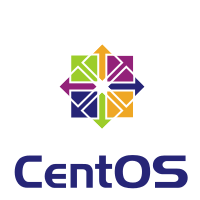
In this tutorial, we will show you how to install GCC on CentOS 8. For those of you who didn’t know, GCC, short for GNU Compiler Collection, is a vital component of any Linux development environment. It includes front ends for C, C++, Objective-C, Fortran, Ada, Go, and D programming languages, along with libraries for these languages. Originally written as the compiler for the GNU operating system, GCC has become the standard compiler for most Unix-like systems and is a key element in the development of the Linux kernel. Installing GCC on CentOS 8 is a straightforward process, but it requires some knowledge of the system and its package management tools.
This article assumes you have at least basic knowledge of Linux, know how to use the shell, and most importantly, you host your site on your own VPS. The installation is quite simple and assumes you are running in the root account, if not you may need to add ‘sudo‘ to the commands to get root privileges. I will show you the step-by-step installation of GCC on a CentOS 8 server.
Prerequisites
- A server running one of the following operating systems: CentOS 8.
- It’s recommended that you use a fresh OS install to prevent any potential issues.
- SSH access to the server (or just open Terminal if you’re on a desktop).
- Basic knowledge of the command line interface.
- A
non-root sudo useror access to theroot user. We recommend acting as anon-root sudo user, however, as you can harm your system if you’re not careful when acting as the root.
Install GCC on CentOS 8
Step 1. Updating Your System.
First, let’s start by ensuring your system is up-to-date.
sudo dnf update
Wait for the update process to complete. This may take a few minutes depending on your internet speed and the number of updates available.
Step 2. Installing GCC on CentOS 8.
CentOS 8 provides a convenient way to install a set of development tools, including GCC, through a package group called “Development Tools”. To install the Development Tools group, run the following command:
sudo dnf groupinstall “Development Tools”
This command will install a suite of development tools, including GCC, make, and other essential utilities for compiling software.
After the installation is complete, it’s important to verify that GCC has been installed correctly.
$ gcc --version gcc (GCC) 8.3.1 20190809 (Red Hat 8.3.1-4) Copyright (C) 2019 Free Software Foundation, Inc. This is free software; see the source for copying conditions. There is NO warranty; not even for MERCHANTABILITY or FITNESS FOR A PARTICULAR PURPOSE.
Step 3. Compiling Hello World.
Let’s create a file to test whether it is working or not. Consider this file to show hello world:
nano hello.c
#include
int main()
{
printf ("Hello World!\n");
return 0;
}
Compile this file with GCC:
gcc hello.c -o hello ./hello
The program will result:
Hello World!
Congratulations! You have successfully installed GCC. Thanks for using this tutorial for installing GCC in CentOS 8 system. For additional help or useful information, we recommend you check the official GCC website.